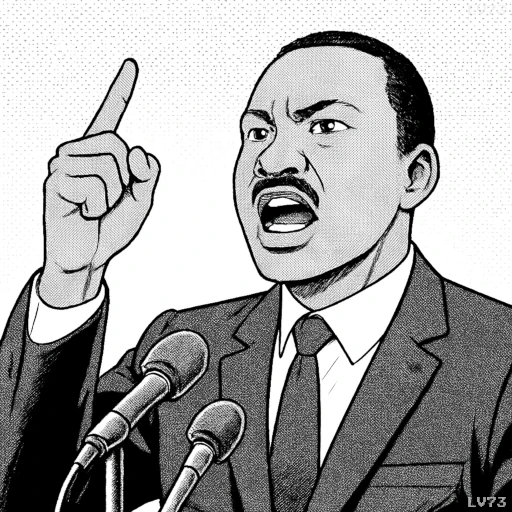“The first question which the priest and the Levite asked was: ‘If I stop to help this man, what will happen to me?’ But… the good Samaritan reversed the question: ‘If I do not stop to help this man, what will happen to him?’”

- January 15, 1929 – April 4, 1968
- African American
- Pastor and civil rights leader
table of contents
Quote
“The first question which the priest and the Levite asked was: ‘If I stop to help this man, what will happen to me?’ But… the good Samaritan reversed the question: ‘If I do not stop to help this man, what will happen to him?’”
Explanation
In this quote, King emphasizes the importance of selfless compassion and empathy in action. He contrasts two perspectives: one focused on self-preservation and the other on concern for others. The priest and the Levite, who chose not to help the injured man, prioritized their own safety and convenience. In contrast, the Good Samaritan put himself at risk, not asking what might happen to him, but rather, focusing on what would happen to the injured man if he did nothing. King uses this parable to illustrate the moral courage required to look beyond our own fears and prioritize the needs of others.
This perspective was central to King’s philosophy of service and responsibility to others. He believed that building a just and compassionate society requires individuals to care for one another, even when it involves personal sacrifice or risk. For King, true compassion meant moving beyond self-interest and embracing a mindset of active concern for the welfare of others, which he saw as essential to creating positive social change.
In today’s world, King’s message calls us to shift our focus from self-centered concerns to the well-being of others. It reminds us to consider the potential impact of our actions, or inactions, on those in need. Whether it’s standing up against injustice, supporting those facing hardships, or engaging in community service, King’s words challenge us to think like the Good Samaritan. This shift in perspective encourages us to cultivate empathy and to take responsibility for one another, recognizing that true compassion requires thoughtful action in the service of others.
Would you like to share your impressions or related stories about this quote in the comments section?


